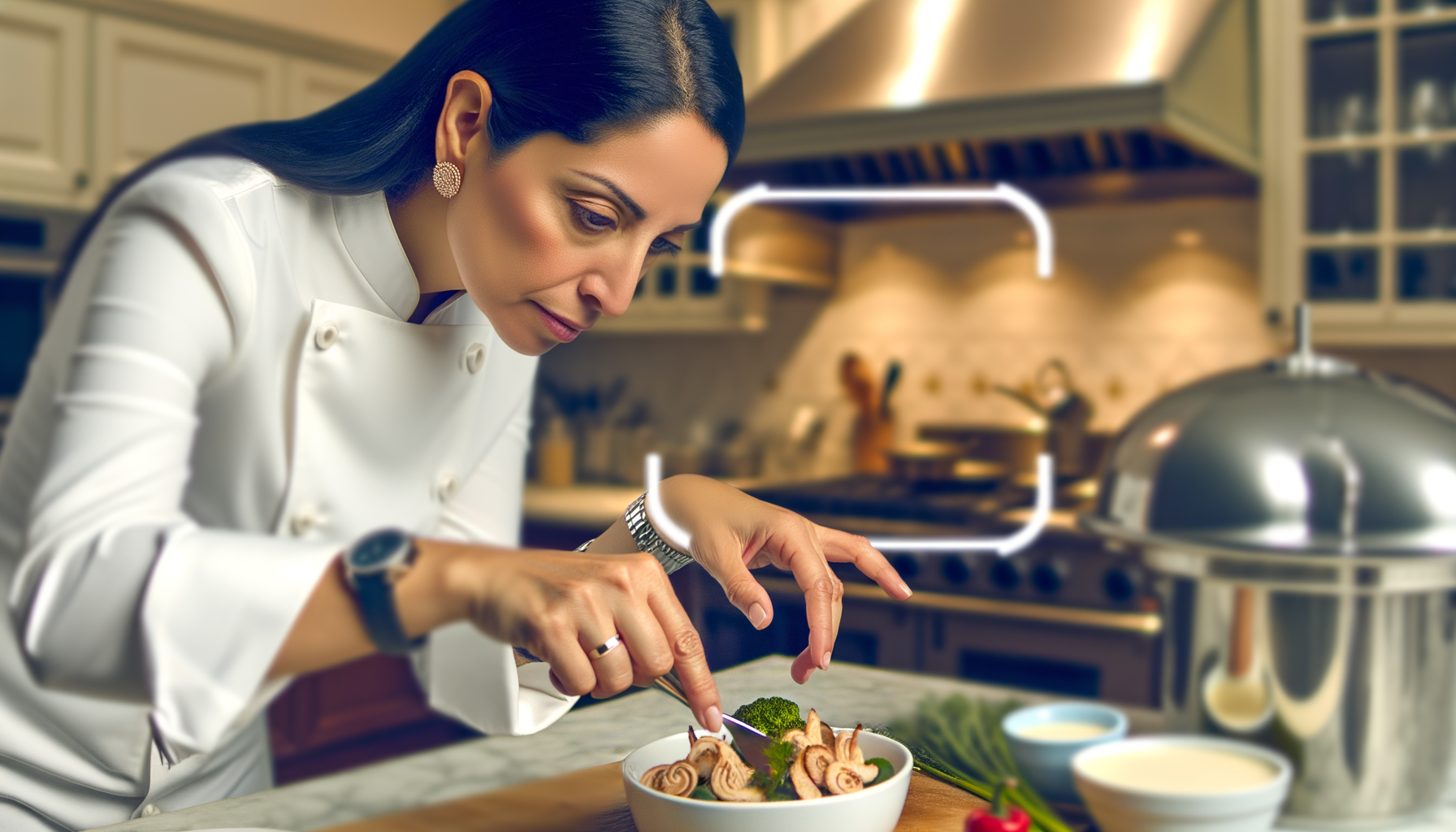
The best SEO practices for a personal chef’s website include optimizing content for relevant keywords, ensuring the website is mobile-friendly, using high-quality images with alt tags, maintaining a blog with regular posts about cooking tips or recipes, gathering customer reviews and testimonials, optimizing site loading speed, obtaining backlinks from reputable sites, creating a Google My Business profile, and utilizing social media to share content and engage with followers. By focusing on these strategies, personal chefs can improve their visibility on search engine results pages, attract more clients, and establish themselves as authorities in their field.
Understanding SEO for Personal Chef Websites
Search Engine Optimization (SEO) is a vital component of any personal chef’s online marketing strategy. It involves optimizing various aspects of your website so that it can rank higher in search engine results pages (SERPs), making it more visible to potential clients. Your aim is to be the go-to chef when someone types “personal chef” alongside their location or when looking for specific culinary services that you offer.
Keyword Research and Optimization
Before you create content or start your SEO journey, research keywords relevant to your personal chef services. Tools like Google’s Keyword Planner can help identify the terms people are using to find personal chefs in your area. Once you have a list of keywords, incorporate them naturally into your content, including page titles, headings, meta descriptions, and throughout your web copy.
Mobile-Friendly Design
In today’s fast-paced digital environment, a mobile-friendly website is a necessity. Most users will access your website from their smartphones or tablets, so ensuring your site is responsive and provides a seamless mobile experience is crucial. Use Google’s Mobile-Friendly Test tool to ensure your site passes all the required checks.
High-Quality Images with Alt Tags
Personal chef services are highly visual. Use high-quality images of your prepared dishes to entice potential clients. All images should have descriptive alt tags, which help search engines understand what the image is about, and they are also essential for web accessibility.
Creating a Blog with Regular Posts
Maintaining an active blog can do wonders for your SEO. Use your blog to post cooking tips, recipes, and discussions about the latest culinary trends. This not only positions you as an expert chef but also provides a steady stream of fresh content that search engines favor.
Encouraging Customer Reviews and Testimonials
Positive customer reviews and testimonials boost your credibility and trustworthiness. Feature these prominently on your website and encourage satisfied clients to leave reviews on platforms like Google My Business and Yelp.
Site Loading Speed Optimization
A fast-loading website provides a better user experience and is rewarded by search engines with better rankings. Use tools like Google PageSpeed Insights to analyze and improve your site’s speed.
Backlink Building
Quality backlinks from reputable websites signal to search engines that your website is a trusted resource. Work on creating content that others will want to link to, and consider collaborations with other local businesses or food bloggers.
Google My Business Profile
Creating and optimizing a Google My Business profile can drastically improve your local SEO visibility. Ensure that your profile is complete with up-to-date information, photos, and client reviews.
Social Media Engagement
Consistently sharing content and engaging with followers on social media platforms can help drive traffic to your website and bolster your SEO efforts.
Diving Deeper into SEO Strategies for Personal Chefs
Optimizing a personal chef website goes beyond the basic practices and involves a deep understanding of SEO strategies that cater specifically to culinary professionals.
Optimizing For Local SEO
Local SEO is particularly important for personal chefs who cater to a specific geographic area. Use local keywords, create location-specific pages, and ensure your business is listed in local online directories.
Structured Data
Structured data, or Schema Markup, can help search engines better understand and index your content, which can enhance your presence in rich snippets. This might include ratings, events, or price ranges for your services.
Content Marketing
Develop an effective content marketing strategy that will attract and retain clients. This could involve advanced tactics like hosting webinars, creating infographics, or producing how-to videos that can provide value and increase engagement.
Technical SEO
Ensure your website’s technical health by addressing issues like broken links, duplicate content, and proper use of canonical tags. Regularly conduct site audits to identify and fix such issues.
Conversion Rate Optimization (CRO)
Attracting visitors to your site is one thing, but converting them into clients is another. Optimize your call-to-action buttons, simplify your contact forms, and ensure your contact information is easy to find.
Regular Monitoring and Updating
SEO isn’t a one-and-done affair. It requires continuous monitoring and updating. Tools like Google Analytics and SEMrush can provide you with insights into your website’s performance, allowing you to tweak your SEO practices accordingly.
Monitoring Rankings and Traffic
Keep a close eye on your rankings for key keywords and monitor your website’s traffic to understand how users are interacting with your site. This information can help inform any necessary changes in strategy.
Adapting to Algorithm Changes
Search engines frequently update their algorithms. Stay informed about these changes and be prepared to adjust your SEO strategies as needed to maintain or improve your rankings.
Continual Learning and Education
The world of SEO is always evolving. Keep up with the latest trends and best practices by following authoritative SEO blogs, attending webinars, and participating in online forums.
Finishing Thoughts
For personal chefs looking to flourish online, leveraging SEO is instrumental. It’s about combining the art of culinary presentation with the science of digital marketing. By integrating these best SEO practices into your website strategy, you can enhance your online presence, attract more clients, and grow your personal brand. Remember, SEO is a journey, not a sprint, and with dedication and continual learning, your personal chef website can achieve the delectable success it deserves.
Frequently Asked Questions
What are SEO best practices for optimizing a personal chef’s website?
To optimize a personal chef’s website for search engines, start by conducting keyword research to identify the terms and phrases that potential clients are using when looking for personal chefs. Incorporate these keywords naturally into quality content on your site, including service pages, blog posts, and your homepage. Ensure your website has a clear, logical structure with a sitemap that helps search engines crawl and index your pages. Additionally, optimize meta titles and descriptions, use alt tags for images, and work on obtaining backlinks from reputable sites within your niche.
How can I improve the local SEO for my personal chef website?
Improving local SEO starts by claiming and optimizing your Google My Business profile. Encourage satisfied customers to leave positive reviews, and respond to all reviews professionally. Include local keywords in your website’s content, and ensure your name, address, and phone number (NAP) are consistent across all online listings. Consider creating location-specific pages if you serve multiple areas, and get listed in local directories.
What type of content should a personal chef include on their website for SEO?
A personal chef should include content that showcases their expertise and appeals to their target audience. This can be recipes, cooking tips, nutrition advice, and information about sourcing ingredients. High-quality images and videos of your food can also engage visitors and increase time spent on your site. Regularly updated content, like blog posts or articles related to your field, can keep your site fresh and encourage return visits.
How important are backlinks for a personal chef’s website SEO, and how can I acquire them?
Backlinks are crucial for SEO as they signal to search engines that other websites find your content valuable. For a personal chef, earning backlinks can involve guest blogging on food-related websites, collaborating with local businesses, and participating in community events. Networking with food bloggers and influencers for features or mentions can also be an effective strategy.
What strategies should I use for keyword optimization on my personal chef website?
Start by choosing relevant keywords with a good balance of search volume and competition. Use them naturally in your content, including titles, headings, and throughout the body. Long-tail keywords can be particularly effective as they have less competition and attract a more targeted audience. It’s important to avoid keyword stuffing, which can harm your SEO efforts, and focus on providing valuable content that naturally incorporates your keywords.
Is mobile-friendliness important for my personal chef website, and how does it affect SEO?
Yes, mobile-friendliness is essential as more users are accessing websites from mobile devices. Google uses mobile-first indexing, which means it predominantly uses the mobile version of the content for indexing and ranking. Make sure your website is responsive, meaning it automatically adjusts to fit the screen size of any device. A mobile-friendly site provides a better user experience, can help reduce bounce rates, and is favored by search engines.
How can I measure the success of my SEO efforts for my personal chef website?
You can measure the success of your SEO strategy by tracking metrics such as organic traffic, search engine rankings for targeted keywords, bounce rate, and conversion rates. Tools like Google Analytics and Google Search Console can provide valuable insights into your website’s performance. Regularly review these metrics to identify what’s working and what may need to be adjusted or improved upon.
How often should I update my personal chef website’s content for SEO purposes?
Regularly updating your website with fresh content is important for SEO. Aim to add new content, such as blog posts or recipes, at least once a month. Consistent updates signal to search engines that your site is active and relevant, which can help improve your rankings over time. However, the quality of content should always take precedence over quantity.
Can social media impact the SEO of my personal chef’s website?
While social media signals do not directly influence search rankings, a strong social media presence can indirectly benefit your SEO. Sharing content from your website to social media can drive more traffic, increase brand awareness, and potentially generate backlinks if your content is shared by others. This increased online visibility can support your SEO efforts by demonstrating your website’s relevance and authority to search engines.
What is the importance of having a fast-loading website for a personal chef in terms of SEO?
Website loading speed is a factor in Google’s ranking algorithms because it affects the user experience. A fast-loading website can reduce bounce rates and encourage users to stay longer, which can positively influence your SEO rankings. Additionally, since many people will access your site via mobile devices, speed becomes even more critical. You can improve your site’s loading speed by optimizing images, minifying code, leveraging browser caching, and using a reliable hosting service.






